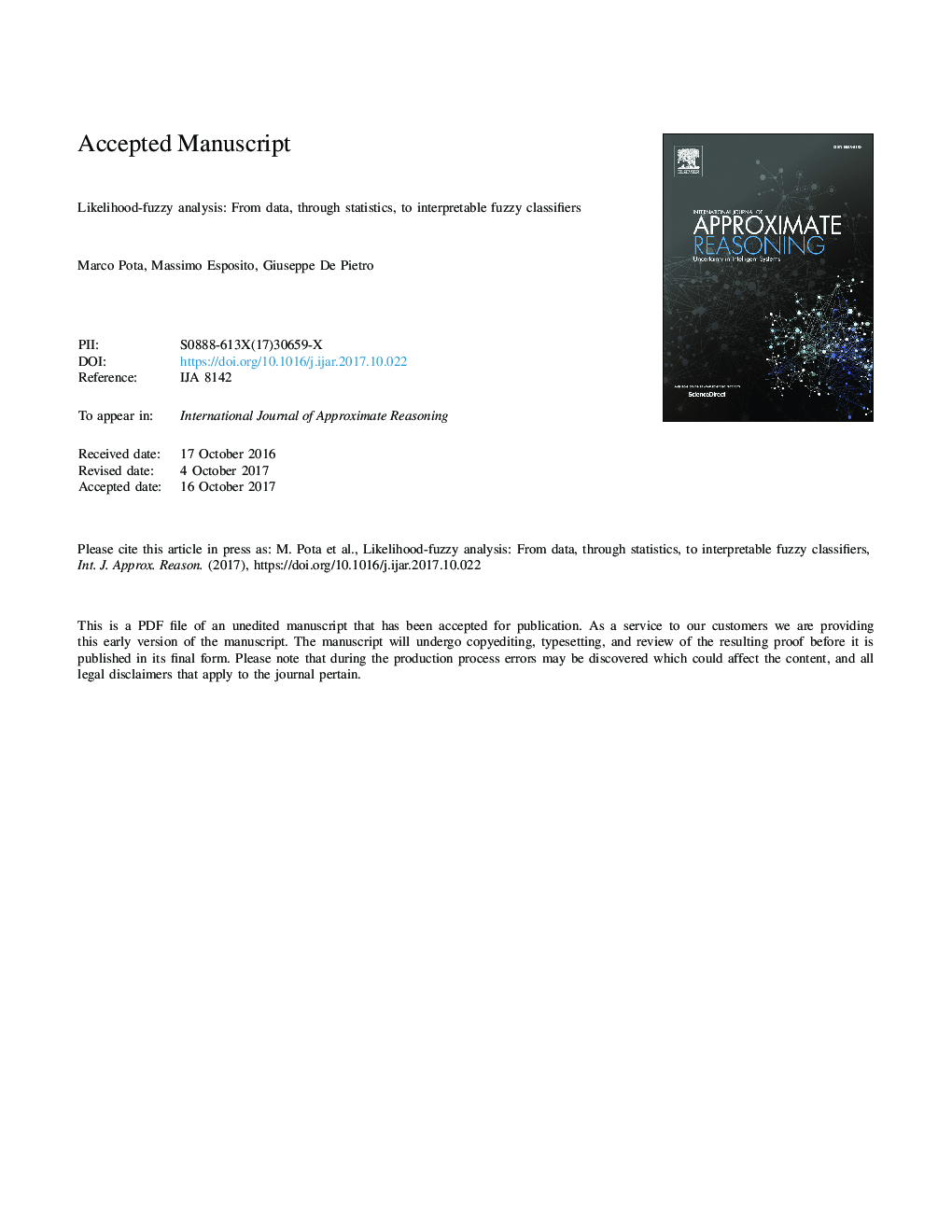| Article ID | Journal | Published Year | Pages | File Type |
|---|---|---|---|---|
| 6858825 | International Journal of Approximate Reasoning | 2018 | 26 Pages |
Abstract
Data-driven extraction of knowledge naturally takes advantage from the use of statistics, since statistical approaches enable to summarize information embedded in the dataset. On the other hand, fuzzy logic has gained increasing importance in data analytics, since it can enable to build a transparent and interpretable knowledge base. In this paper, a method named Likelihood-Fuzzy Analysis (LFA) for translating statistical information coming from labeled data into a fuzzy classification system is proposed. The characteristics of the method and of the resulting fuzzy classifiers are underlined. They range from the capacity of managing a dataset eventually comprising heterogeneous variables and missing data, to the high predictability, good confidence measure in terms of class probabilities, and interpretability of the fuzzy classification model, by means of semantically interpretable fuzzy partitions and if-then rules. The application of the method on a number of benchmark datasets is presented, showing high performances and semantic power, with respect to well-established methods, including fuzzy systems and non-fuzzy approaches.
Related Topics
Physical Sciences and Engineering
Computer Science
Artificial Intelligence
Authors
Marco Pota, Massimo Esposito, Giuseppe De Pietro,
